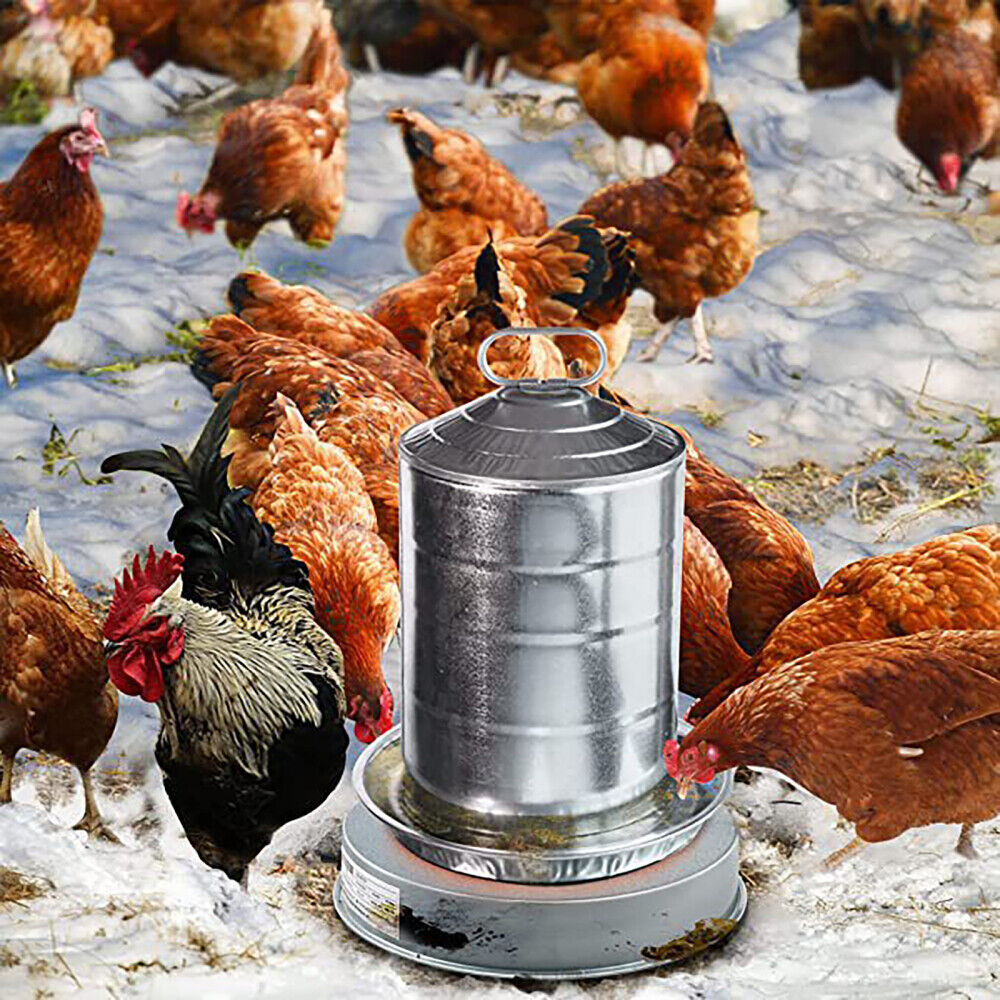A chicken coop water heater is a great way to ensure that your chickens stay warm and hydrated during the colder months. This device will provide your chickens with a safe and reliable source of fresh, warm water at all times, which is essential for their health and well-being. Not only will it help to keep them properly hydrated, but it can also help to reduce the amount of time they spend outdoors in the cold, which can be beneficial for their overall health. With a chicken coop water heater, you can keep your chickens safe and healthy throughout the winter months.
Benefits of a Chicken Coop Water Heater
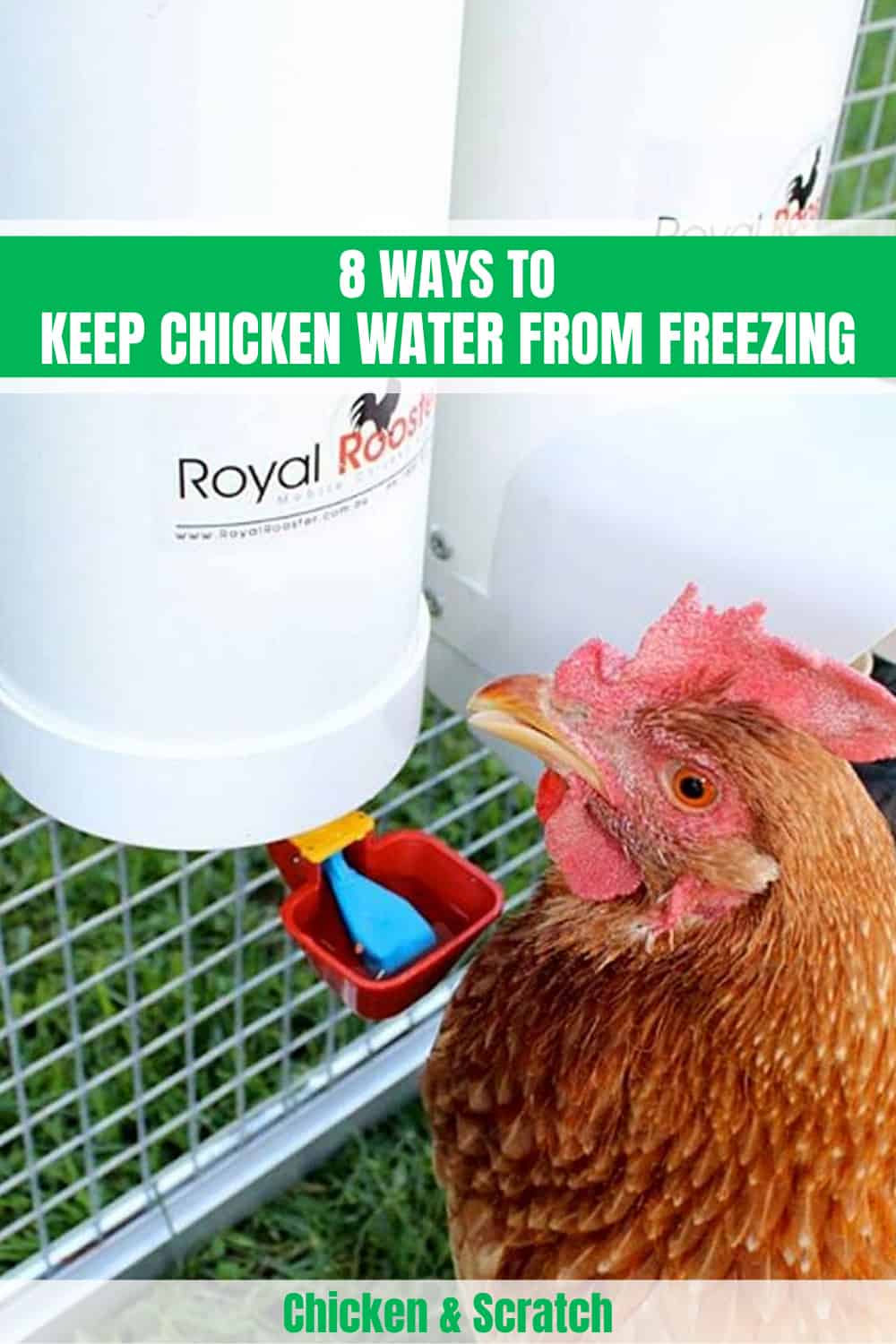
Keeps Chickens Hydrated
A water heater for chicken coop can ensure that the water your chickens have access to is always at the optimal temperature for your birds. If the water is too cold, chickens may not drink it, leading to dehydration, which can cause them to become ill. By keeping the water at the right temperature, you can ensure that your chickens always stay hydrated.
Keeps Chickens Warm
A water heater for chicken coop can also help keep your chickens warm in cold weather. Chickens tend to drink more water when it is cold, and if the water is too cold, they may not drink enough to stay hydrated. By keeping the water at the right temperature, you can help keep your chickens warm and healthy.
Types of Chicken Coop Water Heaters
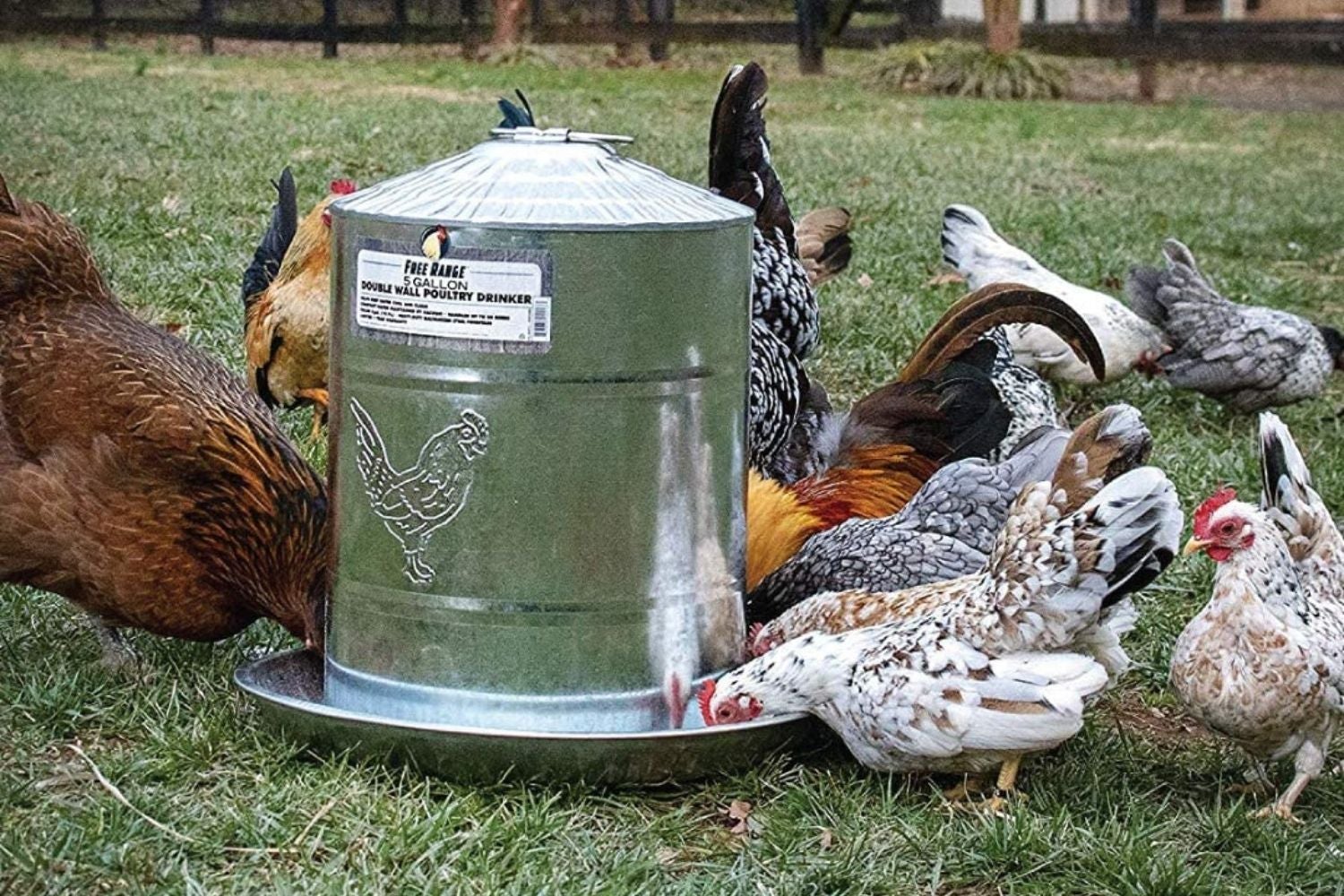
Solar-Powered Water Heaters
Solar-powered chicken coop water heaters are the most cost-effective and environmentally friendly option. They are powered by the sun, which makes them an ideal solution for remote areas. Solar-powered water heaters generate heat by absorbing sunlight and transferring it to the water. They are relatively easy to install and maintain, and are a great way to keep your chickens warm and hydrated.
Electric Water Heaters
Electric water heaters are powered by electricity and can be used in any area with access to electricity. They provide a reliable and efficient way to keep your chickens warm and hydrated, but they can be expensive to install and maintain.
Gas-powered Water Heaters
Gas-powered chicken coop water heaters are powered by natural gas or propane and are an ideal solution for areas without access to electricity. Gas-powered water heaters are more expensive to install than electric water heaters, but they are more efficient and provide more consistent heating than electric models.
Factors to Consider When Choosing a Chicken Coop Water Heater
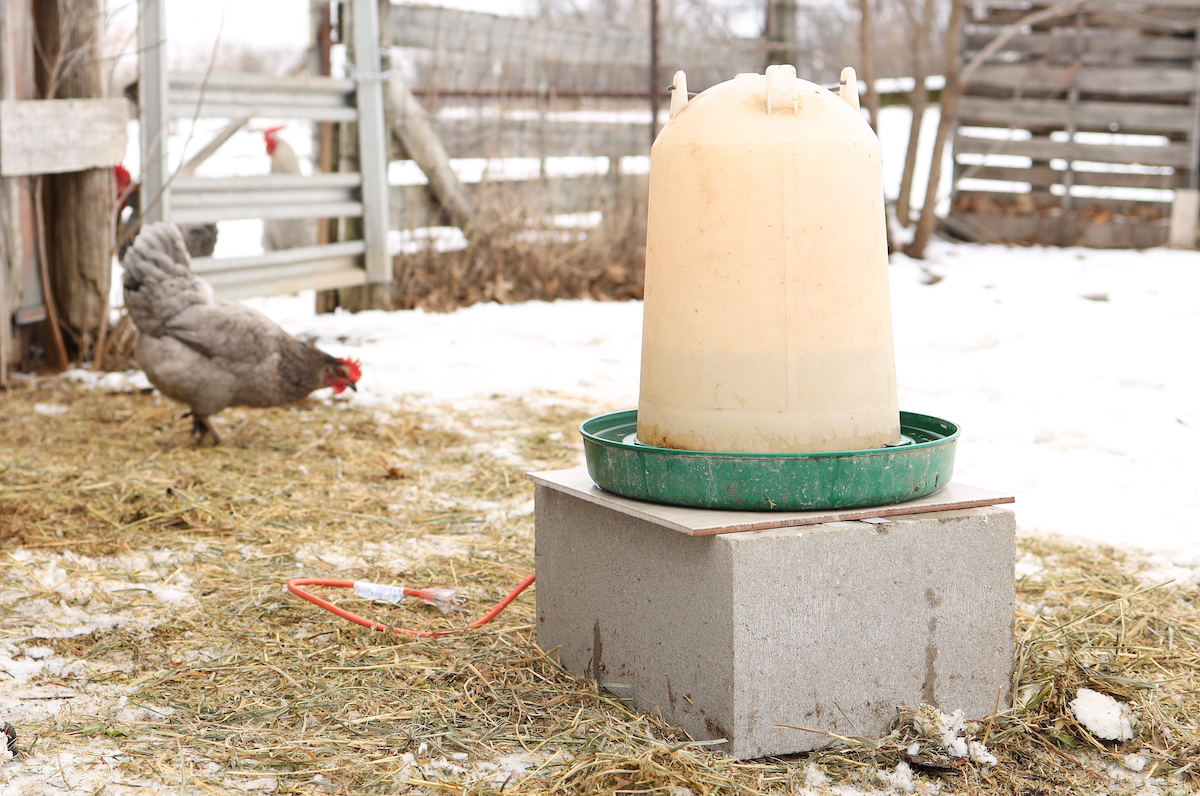
Location
Choosing the right location for the water heater is critical. It should be placed in a spot that is not exposed to the elements and is away from any areas where chickens are roosting.
Size
The size of the water heater should be chosen based on the number of chickens in the coop. Make sure it is large enough to provide adequate hot water for all the chickens.
Cost
The cost of the water heater should be taken into consideration. Prices can vary significantly depending on the size and type of heater being purchased.
Installation
It is important to make sure the heater is installed correctly. Installation instructions should be followed carefully to ensure the heater is safe and functioning properly.
Having a chicken coop water heater is an important part of keeping chickens warm and hydrated in the winter months. It is important to consider several factors when choosing the right heater, such as location, size, cost, and installation. Doing so will ensure the chickens are provided with the necessary heat and water they need to stay healthy and happy.
How to Install a Chicken Coop Water Heater
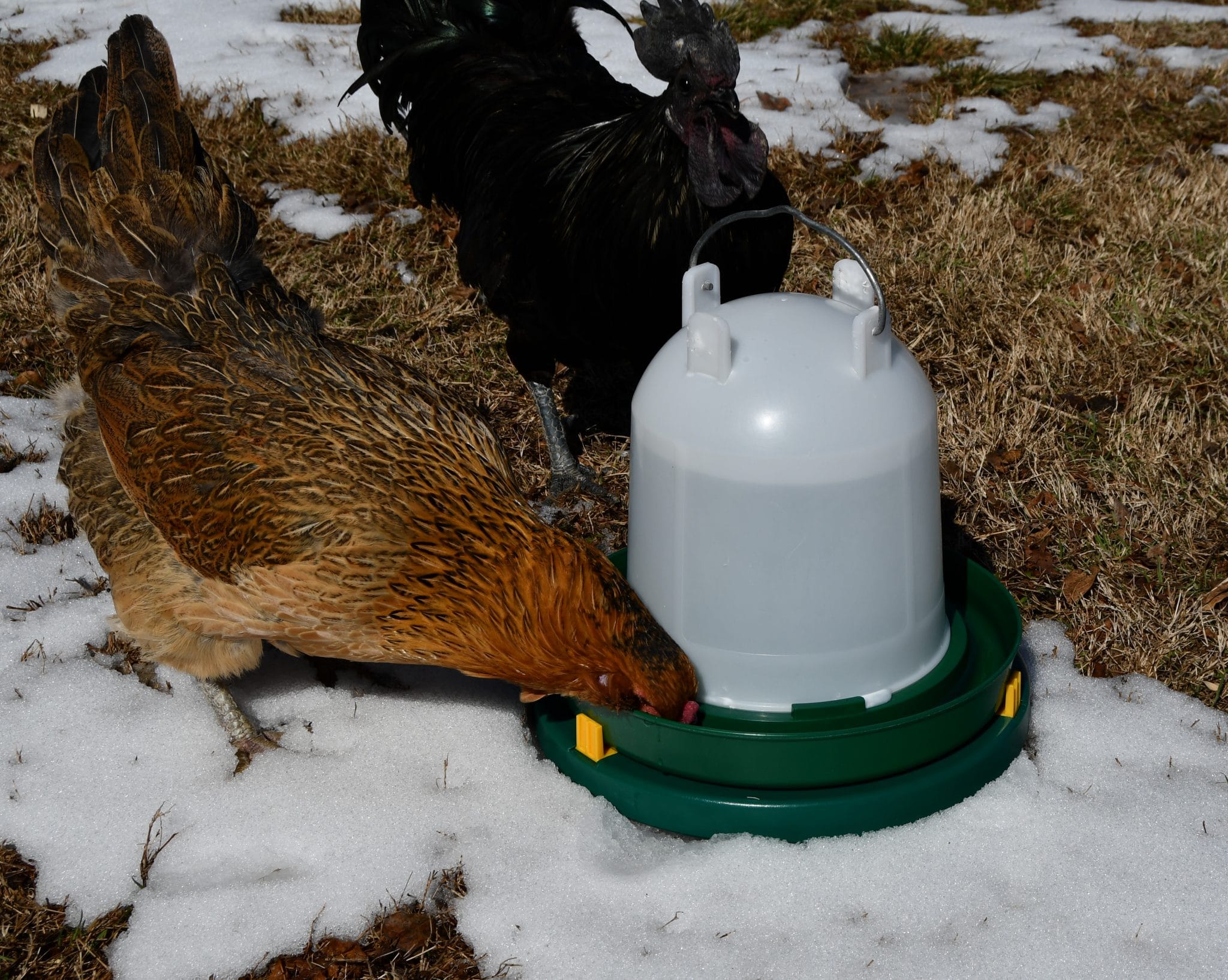
1. Choose a Location
The water heater should be installed in an area of the coop that is protected from the elements and is easy to access for maintenance. It should also be placed at a height that is easy for the chickens to reach.
2. Prepare the Water Heater
Test the water heater before installing it, to make sure it is in good working order. This can be done by connecting it to a power source and filling it with water.
3. Install the Heater
Install the water heater securely, making sure that all the connections are tight. If necessary, use an insulation material to protect the heater from the cold.
4. Connect the Water Line
To ensure that the water heater is able to provide a constant flow of warm water, connect it to a water line. Make sure the connections are secure and that the line is properly insulated.
5. Connect the Heater to the Power Source
The water heater must be connected to a power source in order to function properly. Make sure to use the right type of power cord and ensure that the connection is secure.
6. Check the Heater
Once the water heater is installed, test it to make sure it is functioning properly. Adjust the thermostat if necessary and make sure the water is being heated to the desired temperature.
7. Maintain the Heater
Regularly check the water heater for any signs of wear and tear. Clean the water heater and replace the water filter if necessary. This will ensure that the water heater is working correctly and providing your chickens with warm, clean water.
How to Maintain a Chicken Coop Water Heater
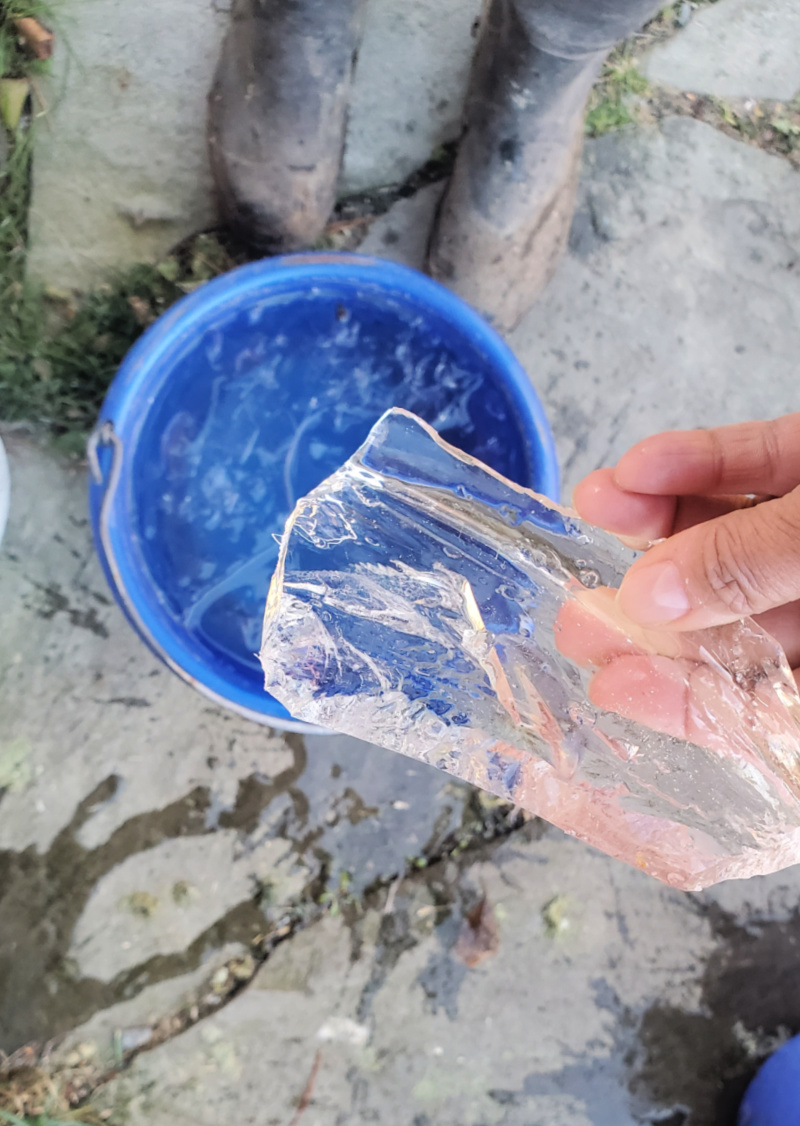
The most important factor in keeping chickens healthy and happy is providing access to clean, fresh water. This is especially important in cold weather when water can freeze over. A chicken coop water heater can provide your chickens with warm water all year round, but it needs to be maintained properly to ensure that your chickens remain safe and healthy.
Cleanliness: Chickens can be quite messy and can bring dirt and debris into their water. This can lead to the growth of bacteria, mold, and parasites. To keep your chicken coop water heater functioning properly, be sure to clean it regularly. Use a sponge or cloth to scrub away any dirt or debris, and then rinse the heater with warm water.
Inspection: It is important to check the condition of your chicken coop water heater on a regular basis. Look for any signs of damage or wear and tear, such as frayed wires, broken parts, or leaks. If you notice any of these signs, be sure to have the heater repaired or replaced immediately.
Temperature: The optimal temperature for a chicken coop water heater is between 65 and 75 degrees Fahrenheit. If the temperature is too low, your chickens may not be able to access the water. On the other hand, if it is too hot, it can cause your chickens to become overheated and stressed. Be sure to check the temperature regularly and adjust it as needed.
Power Source: Most chicken coop water heaters are powered by electricity. Be sure to check the power source regularly and make sure it is functioning properly. If the power source is not functioning correctly, it can be dangerous for your chickens.
Safety: Finally, be sure to take safety precautions when using your chicken coop water heater. Make sure the heater is securely attached to the wall or floor and that it is properly insulated. This will help prevent the heater from becoming damaged or malfunctioning.
By following these steps, you can ensure that your chicken coop water heater is properly maintained and that your chickens have access to the clean, fresh water they need to stay healthy and happy.
Safety Considerations
When installing a chicken coop water heater, it is important to take safety precautions to ensure the safety of your chickens, yourself, and your property. Make sure to read and follow all manufacturer instructions. The installation should be done in accordance with the local and national building codes. It is also important to ensure that the heater is placed in a secure area, away from flammable materials and combustible gases, and that it is properly grounded. It is also important to avoid using extension cords and other unsafe wiring methods for the heater. Finally, make sure to regularly inspect the heater for any potential problems and to ensure that it is functioning properly.
Additionally, it is important to ensure that the water heater is properly maintained and regularly checked for any signs of wear and tear. Be sure to replace any worn-out components immediately, and follow any maintenance instructions provided by the manufacturer.
Frequently Asked Questions
What type of Water Heater is Best for a Chicken Coop?
The best type of water heater for a chicken coop is an electric immersion heater. It is designed to be submerged in the water container and is designed to be used with plastic or metal containers. It is easy to install and maintain, and requires only minimal electricity to keep the water warm. It is also a safe and reliable way to keep your chickens hydrated.
Is a Chicken Coop Water Heater Safe for Use?
A chicken coop water heater is a safe and efficient way to keep your flock’s water supply warm and hydrated during cold winter months. Chicken coop water heaters are designed to be safe and energy-efficient, with built-in thermostats and temperature-controlled settings. They can provide the necessary warmth to keep your chickens healthy and productive, while ensuring that the water remains clean and safe to drink.
How often should a chicken coop water heater be checked and maintained?
A chicken coop water heater should be checked and maintained on a regular basis, typically once every few months. Inspect the heater for any signs of wear and tear such as rust, cracks, and leakage. Make sure the heater is working properly, and that the temperature is set to a safe level for the chickens. Regularly clean the heater to remove any dirt and debris, and replace the filter as needed. Check for water and power supply to ensure the heater is working properly. Finally, replace the heater if it is more than five years old.
How do I know when a Chicken Coop Water Heater Needs to be Replaced?
Signs of Wear and Tear:
- Cracks in the tank or pipes
- Rust or corrosion on the heater
- Loose fittings or connections
- Discoloration of the heater
- Loud noises coming from the heater
Changes in Performance:
- Insufficient hot water
- Uneven temperature
- Water not reaching the desired temperature
- Unexpected increase in energy bills
- Frequent cycling of the heater
Age of the Heater:
- Most water heaters have a lifespan of 8-12 years
- If your heater is over 12 years old, it is time to replace it
If you notice any of these signs of wear and tear or changes in performance, it’s time to replace your chicken coop water heater. It is also important to check the age of the heater to ensure it is not past its peak performance. Taking the time to inspect and replace your water heater will help keep your chickens warm and hydrated.
What are the Benefits of Using a Chicken Coop Water Heater?
- Keeps Water from Freezing: A chicken coop water heater prevents the water in the coop from freezing, ensuring that your chickens have access to fresh, clean water.
- Regulates Temperature: The water heater keeps the water at a warm temperature, making it easier for your chickens to drink and stay hydrated.
- Cost-Effective: A chicken coop water heater is a cost-effective way to keep your chickens hydrated and warm in the cold months.
- Easy to Install and Use: Chicken coop water heaters are relatively easy to install and use, making them an ideal choice for chicken owners.
Conclusion
A chicken coop water heater is an easy and cost-effective way to keep your chickens hydrated and warm in cold weather. It is an essential piece of equipment for any chicken coop and can help to reduce the stress and discomfort associated with cold weather. With a few simple steps, you can easily install and maintain a chicken coop water heater and ensure your chickens remain healthy and comfortable all year round.
